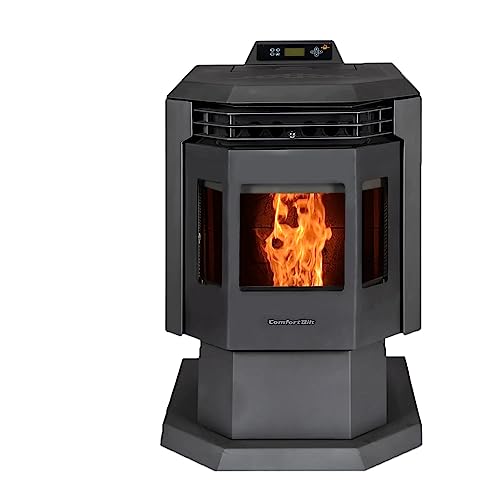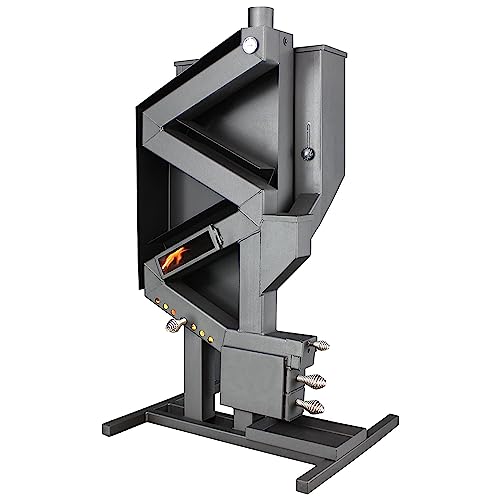The 9 Things Your Parents Teach You About Ventless Pellet Stove
페이지 정보
작성자 Jerilyn 작성일25-01-09 14:04 조회10회 댓글0건관련링크
본문
 The Benefits of a Ventless Pellet Stove
The Benefits of a Ventless Pellet Stove Pellet stoves generate heat by using pellets made from recycled wood byproducts. They emit very little or no CO2. They are considered green since they use less energy and burn the byproducts of renewable resources.
Pellet stoves generate heat by using pellets made from recycled wood byproducts. They emit very little or no CO2. They are considered green since they use less energy and burn the byproducts of renewable resources.You'll need to vent your indoor pellet stove stove properly if you want to get the most from it. Engaging a professional can ensure that your venting meets local safety codes and standards.
Eco-Friendly
Pellet stoves are extremely energy efficiency compared to traditional wood-burning fireplaces. Pellets are a renewable fuel that doesn't produce as much pollution as fossil fuels such as petroleum and natural gas. However, the process of combustion does produce some particulate matter and carbon monoxide, so it's important to regularly clean your stove and exhaust vents in order to ensure that they function properly.
Maintaining your pellet stove will ensure it works correctly and safely, and that you get the most efficient heating performance. Regularly cleaning the burn pot, hopper, and exhaust vents will help prevent the accumulation of ash that can decrease the efficiency of your stove. In addition, making sure your chimney and stove are well ventilated, having the right size and distance to your home's exterior walls can help prevent dangerous carbon monoxide accumulation.
Venting for a pellet stove can be done via the wall, ceiling or even the roof of your home. The type of venting you select is based on your house and individual preferences. Vertical venting is recommended because it keeps the flue gas warm, which increases the efficiency of the stove. It also reduces the risk of smoke getting into your home in the event of a power outage.
Venting kits can be purchased for your pellet stove to ease installation and ensure the proper operation of your stove. These kits usually include an flue pipe made of stainless steel that is insulated that connects directly to the stove on one side and connects to the chimney in your home's masonry or vents through the exterior of the house or roof on the other. The kits should be installed by an experienced installer to ensure your stove is safe and in compliance with your area's building codes and regulations.
Pellet stoves are a fantastic alternative for homeowners who want to heat their homes efficiently without causing any harm to the planet. If you are concerned about the impact of your stove's emissions on the environment, think about using alternative fuels like biodiesel or liquid propane gas to heat your house.
Easy to operate
Pellet stoves are a fantastic alternative for homeowners who like the appearance of a wood-burning stove but don't want to bother with cleaning the chimney or clearing ashes. A pellet stove is a closed unit that has an hopper that can hold the pellets and a combustion chamber and a fan that blows heated air into the room. The stove is controlled by a remote or with a thermostat. The thermostat can be set to operate at a specific temperature, so you don't have to constantly get up to change the settings.
Pellets are compactly compressed and burn extremely hot. This makes them more clean than traditional wood-burning fireplaces and stoves. They also produce less creosote, which can be an hazard to fire. Pellet stoves can be quickly cleaned and maintained.
Pellet stoves unlike other fuels and appliances are self-igniting. A small surface igniter controlled by circuitry heats up the pellets, causing them to begin burning. The pellets are blown through a tube from the burn pot to an exhaust fan, which pushes smoke and combustible gasses out of the stove through the vent. The exhaust that is filtered will be sucked out through the cleanout tee into the wall or up through the roof depending on the location of the installation and local codes.
The majority of pellet stoves are designed to be direct-ventilated. However, some are also available as freestanding models that can be integrated into an existing fireplace and placed in the hearth. These can be ducted in to your home's current venting system, but aren't equipped to provide the same warmth as a stove venting through a fireplace.
The hopper that you use for your stove's pellets holds the fuel and is located on the back side of the appliance. The capacity of the hopper will differ, and you may have to refill it when the fuel level is low. It is recommended to purchase a larger hopper since it will allow the stove to run for longer periods between refills.
A circuit board controls the hopper and blower, in addition to other functions of the stove. The circuit board controls the amount of pellets that are fed into the burner and also the flow of air through the hopper. The hopper also contains sensors that to regulate the operation of the stove.
Convenient
A ventless pellet stove is a great option when you are looking to heat your home without having to deal with pellets or complex venting. Pellet stoves use compressed wood pellets that are available in 40-pound bags. These pellets are usually made from recycled sawdust and wood shavings (which is why they are carbon-neutral).
It is very simple to operate. It is all you need to do is load them, set the thermostat and turn on the fan. The stove will automatically adjust to keep the temperature you want to maintain.
Pellet stoves typically make use of natural convection for room heating, but most models are equipped with what's known as a distribution blower to assist in the process. The blower pulls cool air into the stove, and then passes it over an exchanger on the top of the chamber for combustion. The heat exchanger transfers heat from the burning pellets to air that circulates inside your home.
Since pellet stoves burn as a clean fuel, they generate very little ash. However, this means that you'll have to clean the ash drawer or pot on a regular basis. modern pellet stove stoves have an easy-to-access ash drawer which makes the process as easy as pulling it out and disposing of the ash.
A pellet stoves modern stove with an emergency power source can continue to function even if the main power goes out. However, this feature comes at an additional cost, and the backup power sources last only approximately 8 hours. Consider a gas stove if you're worried about a possible power outage.
A ventless pellet stove will still require a flue however, the flue is able to run horizontally to the chimney of a masonry or through an exterior wall. Installing ventless pellet stoves is significantly easier and cheaper because you don't have to run a pipe through the ceiling, and then out your roof.
Efficient
Pellet stoves consume less energy than other fireplaces using wood. Certain models are rated up to 99% efficient. They achieve this by utilizing technology to ensure that the pellets are burned completely before they leave the combustion chamber. This is made possible by advances in the design of combustion chambers and the use of programmable thermostats. These advances help ensure the heat produced in the home is evenly distributed.
Pellet stoves are easy to maintain and release minimal or no odor unlike other fire places that burn wood. You only need to empty and fill the hopper once or two times a day. It is not necessary to carry large bags of wood or spend time buying or cutting it down.
As a heating device pellet stoves come with a number of additional advantages. They are often cheaper than a wood-burning or gas fireplace and can be incorporated into hot water systems in your home to help reduce your utility bill. Furthermore, pellet stoves can be used to warm only one room in your home, thereby reducing heating costs and also reducing the amount of fuel required to heat your entire home.
There are several factors to consider before purchasing pellet stoves. One is that electric powered pellet stoves and won't operate in the event of power outages. This is a major issue for homeowners in areas that are susceptible to frequent power outages. However, some manufacturers provide battery backup systems that give you some extra hours of operation.
Another thing to consider is that, while pellet stoves are extremely efficient, they do not provide as much heat as vented wood-burning fireplaces. This could be a problem for homeowners with larger homes or live in cold climates.
To maximize the efficiency of a pellet stove, it should be properly designed and maintained. A certified professional can assess your home and recommend the proper size of stove to meet your heating needs. Homeowners must also clean their stoves regularly and get them professionally cleaned once a yearly. They should also adjust their stove settings to suit their needs for heating and insulate their home properly to reduce energy consumption.
Warning: Use of undefined constant php - assumed 'php' (this will throw an Error in a future version of PHP) in /data/www/kacu.hbni.co.kr/dev/skin/board/basic/view.skin.php on line 152
댓글목록
등록된 댓글이 없습니다.

